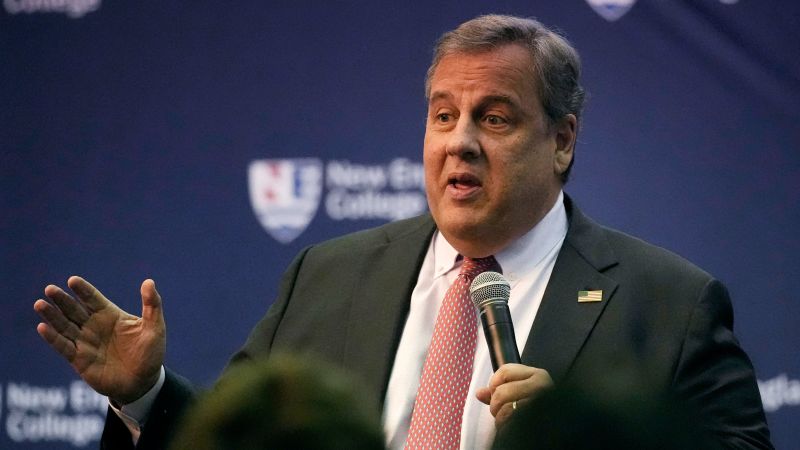Who is Chris Christie, Republican presidential hopeful? 3:37
(CNN) -- Former New Jersey Governor Chris Christie ran Tuesday for the presidential nomination for the Republican Party for the 2024 elections, in what represents his second attempt to reach the White House and a new confrontation with former President Donald Trump, favorite of the party and former ally of Christie.
Tuesday's announcement comes a day after Chris Sununu, a moderate Republican and governor of New Hampshire, decided not to run for the nomination, and less than 24 hours after former Vice President Mike Pence officially entered the race. As in 2016, Christie will seek to appeal to more traditionally conservative and pro-establishment Republicans, while hoping to emerge as a contrast to both Trump and Florida Gov. Ron DeSantis, who has had a rapid growth process.
In addition to Trump and DeSantis, others have already announced they will compete for the Republican nomination. Among them, former South Carolina Gov. Nikki Haley, former Arkansas Gov. Asa Hutchinson and South Carolina Sen. Tim Scott. Pence, who has already filed paperwork to enter the race, and North Dakota Gov. Doug Burgum are expected to join the list on Wednesday.
- Two Former Gov. Chris Christie Officials Found Guilty in Bridge Closure Trial
As CNN previously reported, Christie believes he is better positioned to take on Trump in the primaries while also attracting independents in a potential general election tussle with President Joe Biden. The former governor begins his aspiration with the support of a new political action commission called "Tell it as it is" and formed by allies who anticipated his campaign.
Christie's flirtation with presidential politics began in 2011, when he considered running in the primaries to face then-President Barack Obama a year later. He backtracked and saw his prestige wane among Republicans heading into 2016. His 2016 campaign was short-lived and most memorable was Christie's mockery of Florida Sen. Marco Rubio in a debate in February.
advertising
Both eventually withdrew — Christie after finishing sixth in the New Hampshire primary — and backed Trump.
But Christie went a step further.
He led Trump's transition team, though his job was eventually scrapped and Christie himself was sidelined days after the election, and later became a close adviser to the former president. He was raised as a potential candidate for a number of administrative positions, though none materialized. He even participated in mock debates with Trump in 2020. (Christie said he believes he contracted covid-19 from Trump, who did not disclose a positive test result, during one of those sessions.)
Following Trump's defeat and subsequent attempt to overturn the 2020 election, Christie turned against him and tried to establish himself as one of Trump's leading Republican critics.
"We keep losing and losing and losing," Christie said at the Republican Jewish Coalition's annual leadership conference late last year. "The reason we're losing is because Donald Trump puts himself before everyone else."
- Pence files paperwork to join as a contender for the Republican presidential nomination for 2024, marking a showdown with Trump
He also said Trump "incited" the Jan. 6, 2021, insurrection at the U.S. Capitol "in an effort to intimidate Mike Pence and Congress into doing exactly what he had said in his own words the week before: overturning the election."
In an interview with Axios this year, he vowed never to support Trump again.
"I can't help him," Christie said. "No way," he added.
Christie was first elected governor of New Jersey in 2009, unseating Democrat Jon Corzine. He was a U.S. attorney in New Jersey from 2002 to 2008, during which time he successfully prosecuted son-in-law's father and former Trump aide Jared Kushner on criminal tax evasion and witness tampering charges.
Christie himself was embroiled in the "Bridgegate" scandal during his second term as governor. Emails and text messages from top aides showed that lane closures on the George Washington Bridge in September 2013 — which caused massive traffic jams — were due to political vendetta after the city's Democratic mayor refused to endorse Christie's re-election to governor.
A federal investigation determined Christie had no knowledge of the decision to close the lanes, but the scandal continued to haunt the former governor.
Fredreka Schouten contributed to this report.
Chris ChristieRepublican Party
